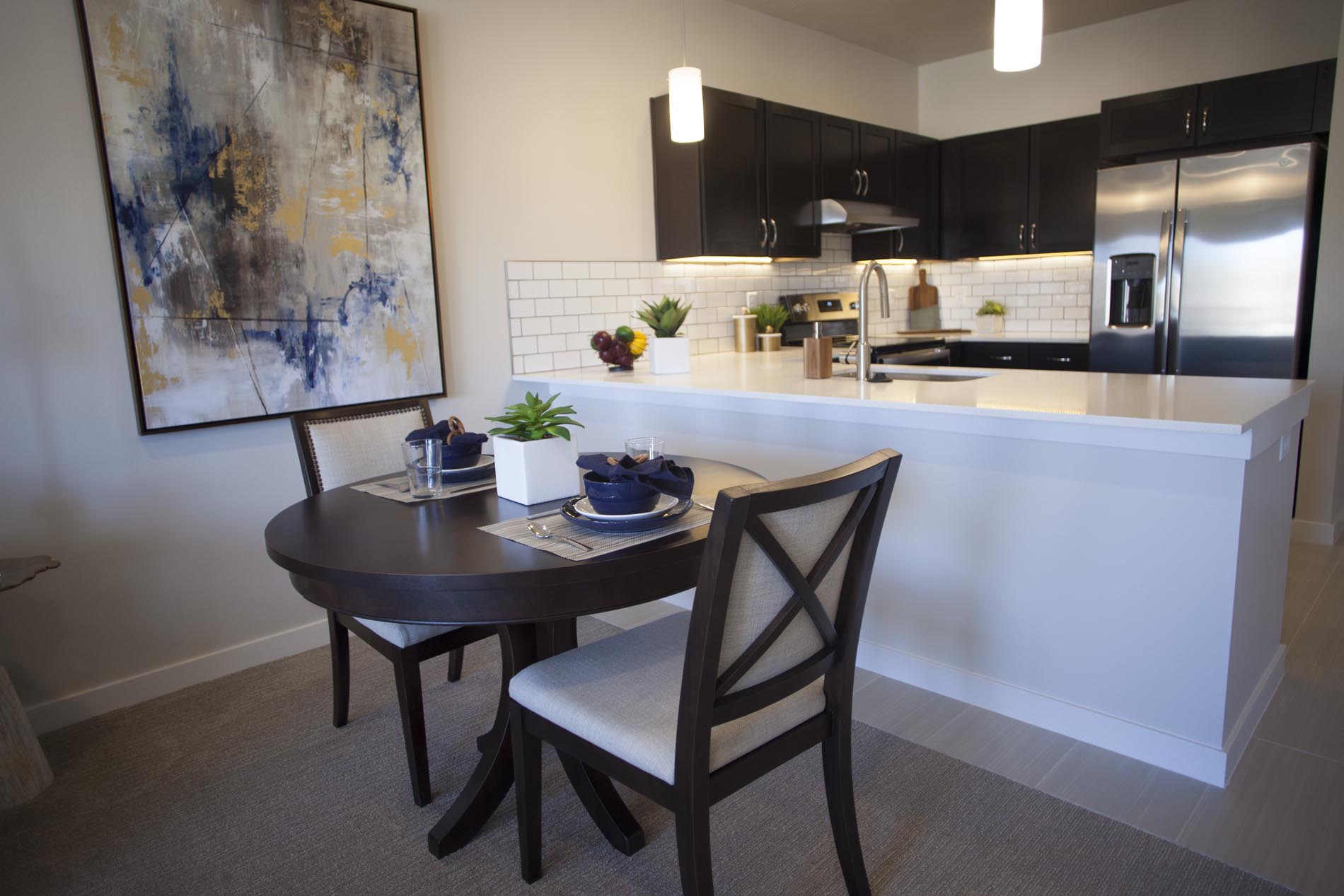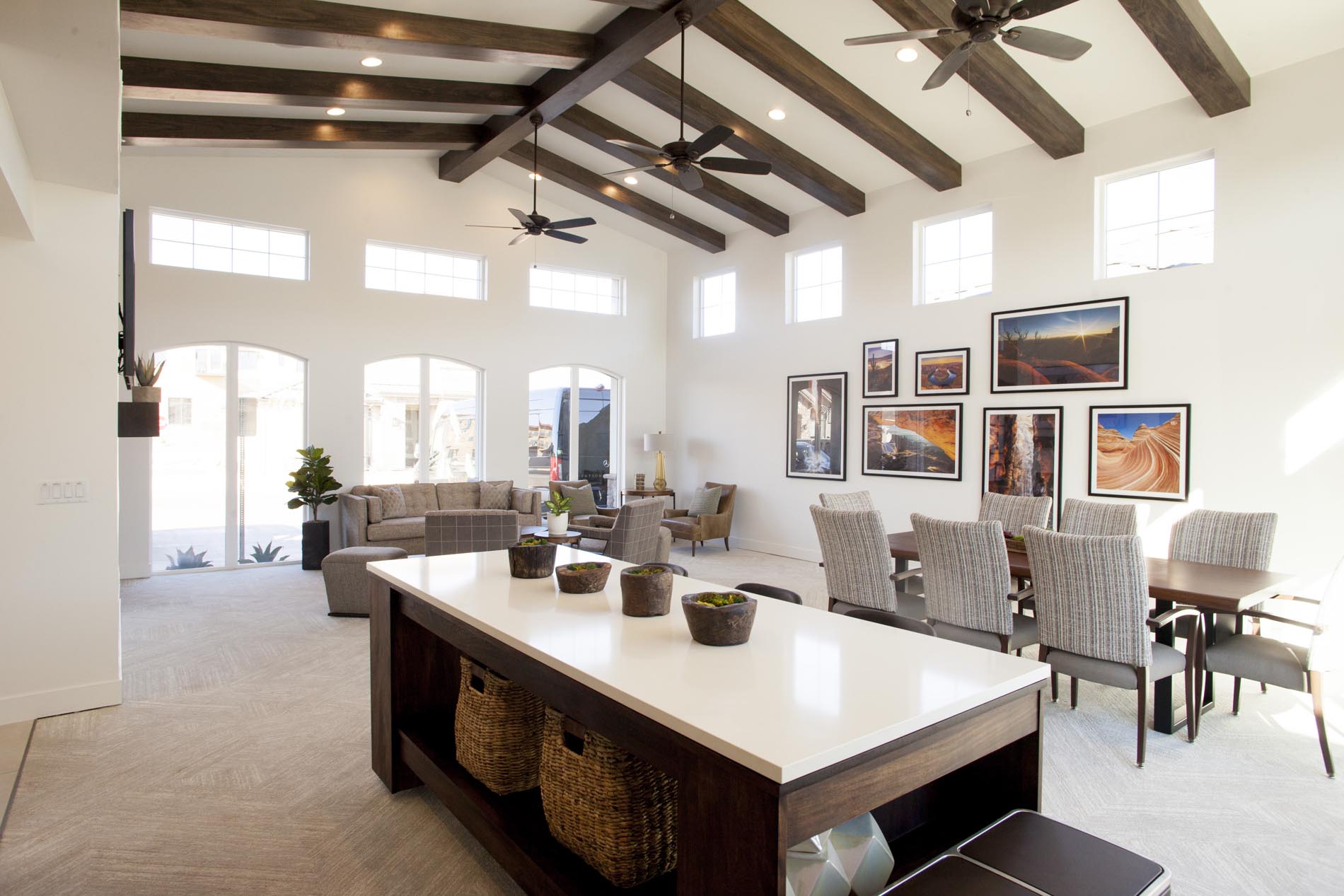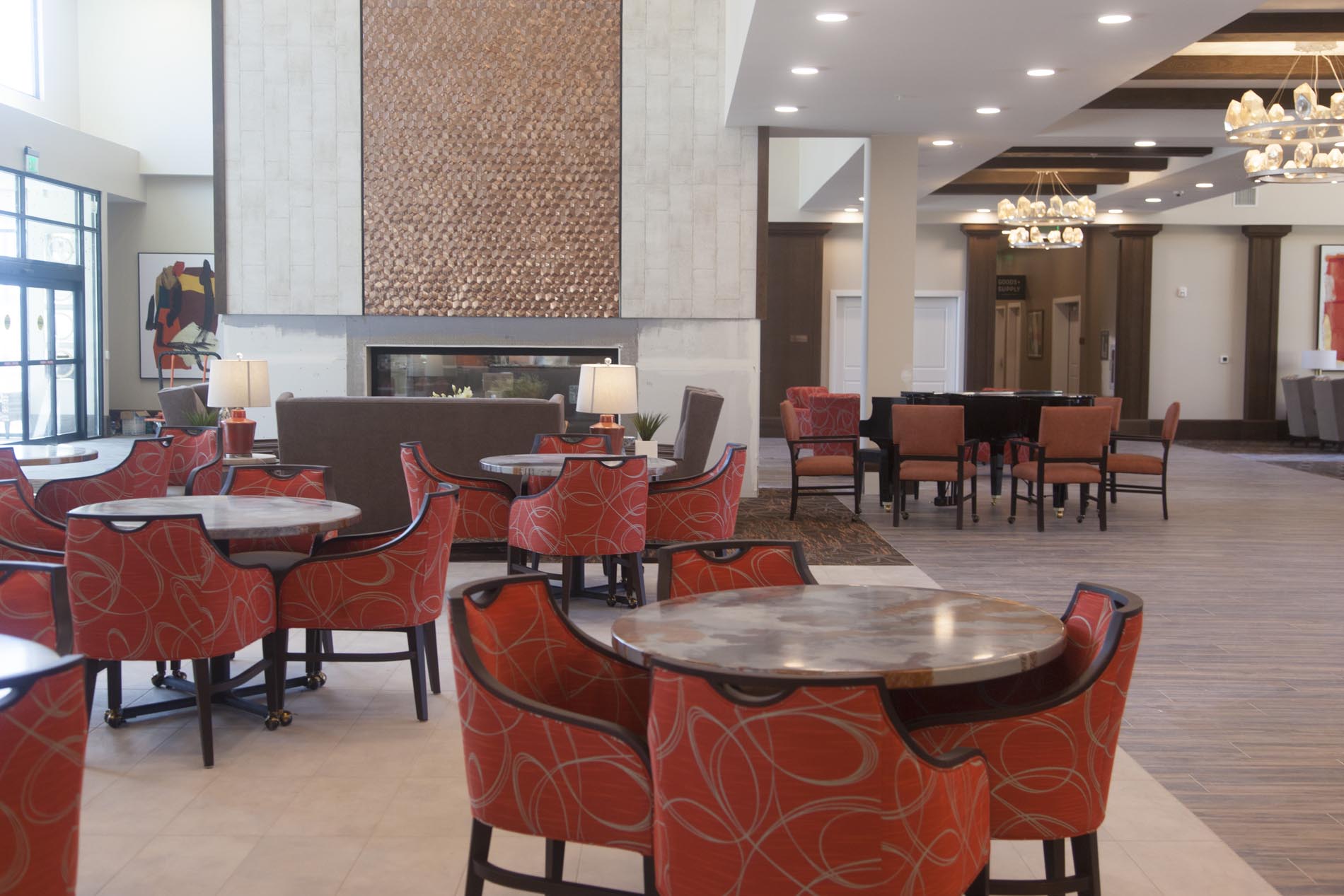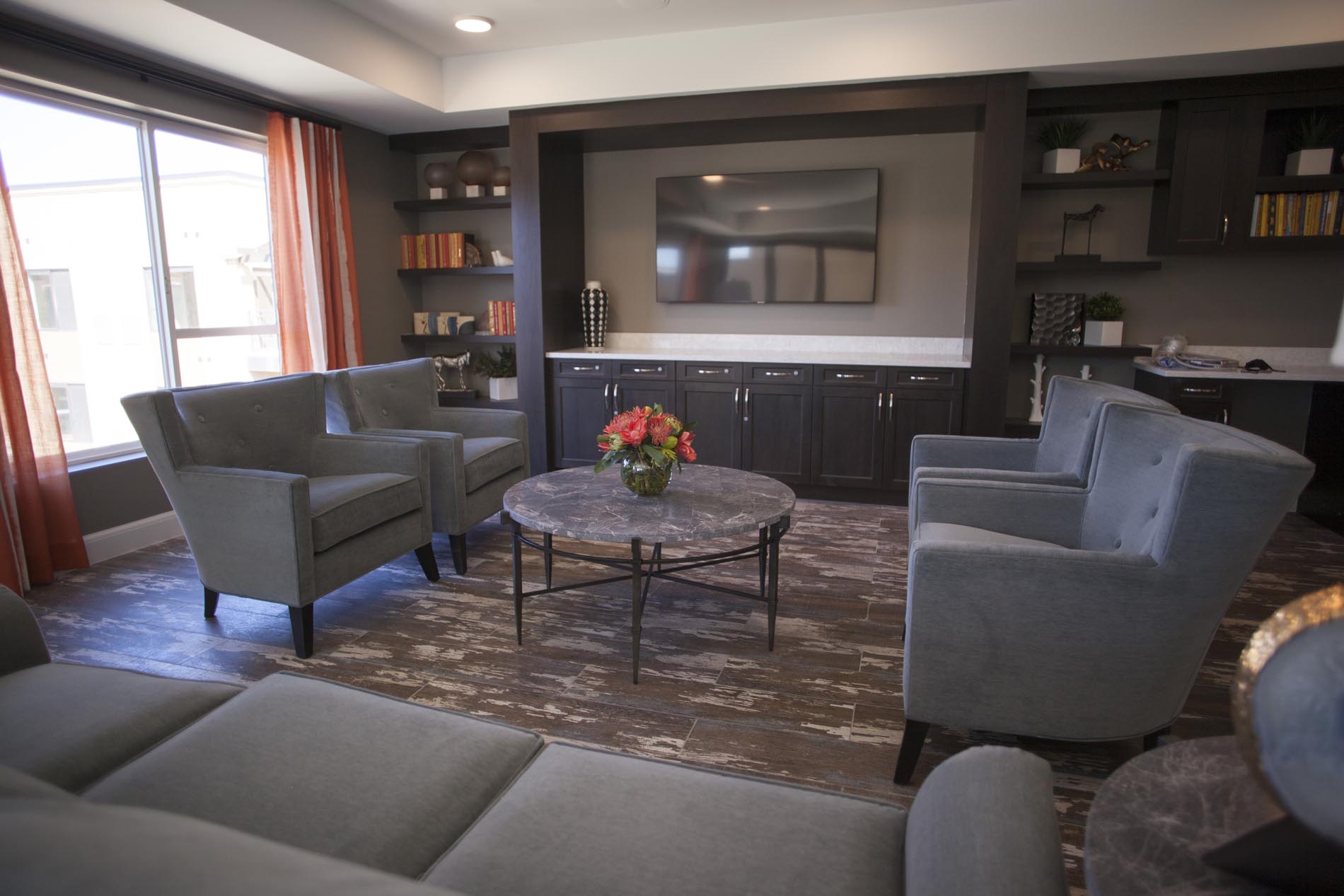What Is the Difference between Independent Living, Assisted Living, and Memory Care?
Helping parents transition out of their home and into a senior living community can be an overwhelming, stressful process for adult children. Having a plan in place and understanding keystone differences between the various types of senior living communities in your area will help make the process smoother and take the guesswork out of the decision.
While the process looks different for each individual and for every family, understanding the basics is always the first step when beginning the journey to finding your loved one’s future residence.
Do your research.
Knowing the different communities, visiting their websites, and taking tours of their properties is a great place to start. Familiarize yourself with the standards each company holds for its staff, especially its clinical team.
Do they have a nurse on site 24/7? What are their staffing ratios? How do they handle wandering risks for patients with dementia and Alzheimer’s disease? What are their COVID19 policies and procedures?
Evaluate how your loved one is doing.
One of the best ways to determine how your loved one is doing while living on their own is to drop in unexpectedly. See with your own eyes how they are doing on their own without any assistance. Is there anything out of place? Are there signs they aren’t keeping up with cleaning, maintenance, and laundry? Are they dressed, clean, and groomed? Are they taking their medication? Be sure their basic needs are being met.
Understanding if they are safe in their home is also an important part of this process. Have they fallen recently? Are there maintenance issues in the home that haven’t been addressed and are posing a safety issue to your loved one? Often, folks who have large homes will start spending all of their time only downstairs to avoid using the stairs and to limit their walking. This is a strong sign they are ready to downsize and move into a senior living community.
Determine your loved one’s needs.
It’s important to understand the different types of senior living to determine where your loved one will be best suited to be a resident.
Independent Living: Those living in these types of communities are fully independent, though many communities offer payment options that include amenities, some added safety measures, and meals. This type of living is generally for folks who can ambulate well and are active and healthy.
Assisted Living: Folks who reside in Assisted Living generally need help with activities of daily living, such as walking, getting out of bed, getting dressed, and taking their medication. Assisted living residents’ needs can range from no additional care (maybe they just like the peace of mind) to needing help with all activities of daily living.
Memory Care: Memory Care residents are diagnosed with Alzheimer’s or dementia and need help with all or most of their activities of daily living. These residents are typically folks who have apparent behavioral changes and symptoms of memory loss and who need to be continuously supervised and cared for.
Part of the process of determining which type of living is best for your loved one is to have an evaluation by their physician. Additionally, at communities like Ovation Sienna Hills, the director of health services and the nursing department will carry out a wellness evaluation to determine a specific care plan that matches their needs.
If you would like to talk with a representative from Ovation Sienna Hills about the type of senior living best suited for your loved one, please call (435) 429-0000 or contact us.
What Is the Difference between Independent Living, Assisted Living, and Memory Care?
Helping parents transition out of their home and into a senior living community can be an overwhelming, stressful process for adult children. Having a plan in place and understanding keystone differences between the various types of senior living communities in your area will help make the process smoother and take the guesswork out of the decision.
While the process looks different for each individual and for every family, understanding the basics is always the first step when beginning the journey to finding your loved one’s future residence.
Do your research.
Knowing the different communities, visiting their websites, and taking tours of their properties is a great place to start. Familiarize yourself with the standards each company holds for its staff, especially its clinical team.
Do they have a nurse on site 24/7? What are their staffing ratios? How do they handle wandering risks for patients with dementia and Alzheimer’s disease? What are their COVID19 policies and procedures?
Evaluate how your loved one is doing.
One of the best ways to determine how your loved one is doing while living on their own is to drop in unexpectedly. See with your own eyes how they are doing on their own without any assistance. Is there anything out of place? Are there signs they aren’t keeping up with cleaning, maintenance, and laundry? Are they dressed, clean, and groomed? Are they taking their medication? Be sure their basic needs are being met.
Understanding if they are safe in their home is also an important part of this process. Have they fallen recently? Are there maintenance issues in the home that haven’t been addressed and are posing a safety issue to your loved one? Often, folks who have large homes will start spending all of their time only downstairs to avoid using the stairs and to limit their walking. This is a strong sign they are ready to downsize and move into a senior living community.
Determine your loved one’s needs.
It’s important to understand the different types of senior living to determine where your loved one will be best suited to be a resident.
Independent Living: Those living in these types of communities are fully independent, though many communities offer payment options that include amenities, some added safety measures, and meals. This type of living is generally for folks who can ambulate well and are active and healthy.
Assisted Living: Folks who reside in Assisted Living generally need help with activities of daily living, such as walking, getting out of bed, getting dressed, and taking their medication. Assisted living residents’ needs can range from no additional care (maybe they just like the peace of mind) to needing help with all activities of daily living.
Memory Care: Memory Care residents are diagnosed with Alzheimer’s or dementia and need help with all or most of their activities of daily living. These residents are typically folks who have apparent behavioral changes and symptoms of memory loss and who need to be continuously supervised and cared for.
Part of the process of determining which type of living is best for your loved one is to have an evaluation by their physician. Additionally, at communities like Ovation Sienna Hills, the director of health services and the nursing department will carry out a wellness evaluation to determine a specific care plan that matches their needs.
If you would like to talk with a representative from Ovation Sienna Hills about the type of senior living best suited for your loved one, please call (435) 429-0000 or contact us.




